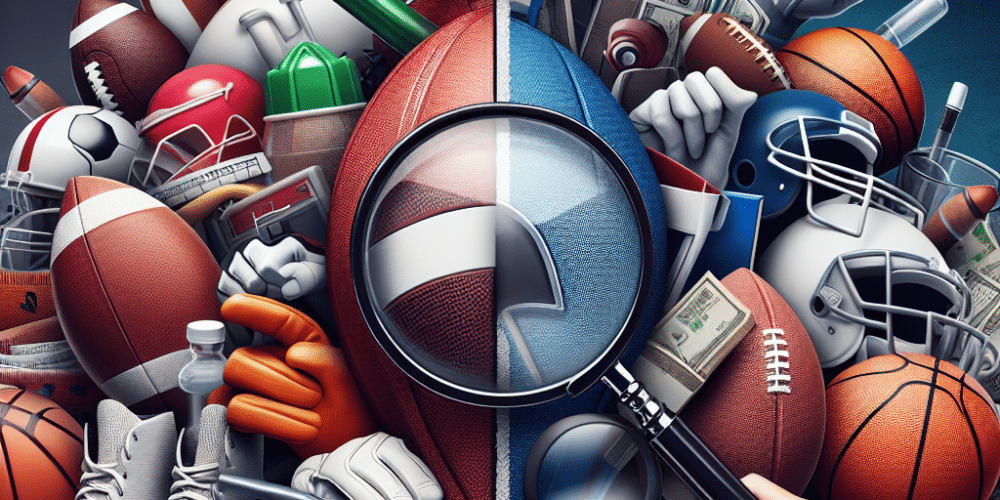The National Collegiate Athletic Association (NCAA) has intensified its investigation into sports wagering violations, uncovering allegations against thirteen former men’s basketball players from six different programs. This recent disclosure highlights the NCAA’s active measures to maintain the integrity of collegiate sports in the face of a rapidly changing gambling industry.
The athletes under suspicion are accused of betting for and against their own teams, sharing insider information with external parties, and, in extreme cases, deliberately influencing game outcomes for financial gain. Additionally, some players have been noted for their lack of cooperation with the NCAA’s enforcement staff, which itself constitutes a breach of conduct.
These former athletes hail from institutions including Eastern Michigan, Temple, Arizona State, New Orleans, North Carolina A&T, and Mississippi Valley. However, the NCAA clarified that none of these players are currently enrolled at these universities. Importantly, no coaching staff or school officials have been found complicit, and the schools themselves are not subject to penalties in connection with these violations.
The NCAA’s Committee on Infractions has utilized a combination of suspicious activity alerts from integrity monitors, reports from the universities involved, and digital communications between the athletes to build its cases. The integrity monitoring system has been crucial in identifying irregular betting patterns, which have led to these latest enforcement actions.
The challenge posed by proposition bets, or prop bets, remains a significant concern for sports integrity. NCAA President Charlie Baker emphasized the urgency of the situation, citing the media attention on previous cases as a catalyst for this latest public statement. He called on regulators and sports betting operators to strengthen integrity measures and advocated for a ban on prop bets involving college athletes. Such wagers, he argued, can incentivize unethical behavior and expose athletes to undue pressure and harassment.
Despite the challenges, legalized sports betting continues to expand across the United States, presenting more opportunities for athletes to participate in betting activities. Baker expressed that while sports betting is an enduring reality, there is a shared responsibility among regulators and betting companies to mitigate these integrity risks.
These current allegations come in the wake of recent actions taken against athletes Mykell Robinson and Jalen Weaver of Fresno State and Steven Vasquez of San Jose State. The trio was implicated in sharing betting information and coordinating their gambling efforts, collectively earning nearly $16,000 from their activities. They reportedly placed bets on their own games and intentionally missed performance targets to manipulate prop bets, highlighting the potential for corruption when athletes engage directly with the gambling market.
As the NCAA navigates the complexities of legalized sports betting, it has prioritized integrity education for its stakeholders. Since 2022, the NCAA, in collaboration with EPIC Global Solutions, has facilitated gambling-harm education for over 100,000 athletes, coaches, and administrators. Furthermore, the “Draw the Line” campaign launched in March provided educational resources to schools, focusing on the risks and consequences associated with sports wagering.
However, there are contrasting opinions on how to address this issue. Some argue that increased education and stricter regulations are not enough to curb the temptation athletes face in a culture where sports betting is becoming normalized. Critics suggest that the NCAA’s efforts might be more about public relations than effectively addressing the root causes of gambling among athletes. They point to the need for reform in how the NCAA interacts with betting companies and question whether the organization can adapt quickly enough to the evolving landscape of sports wagering.
In conclusion, the NCAA’s latest investigations into sports betting violations underscore the ongoing battle to protect the integrity of college sports. With the gambling industry expanding, the organization faces the dual challenge of enforcing rules while adapting to new realities. This situation calls for comprehensive strategies that include education, regulation, and perhaps a reevaluation of the NCAA’s own role in the broader sports betting ecosystem. The outcome of these investigations and the measures taken in response could shape the future of how collegiate sports navigate the intersection of athletics and gambling.

















